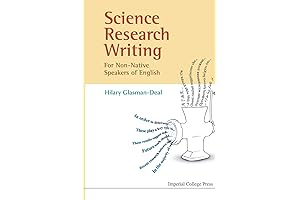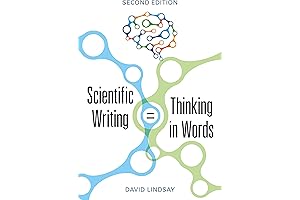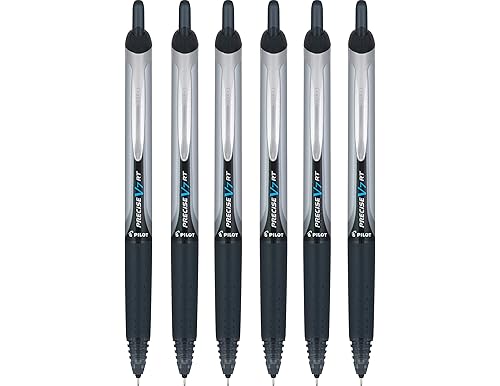· science · 13 min read
Best 10 'scientific writing for non native speakers of english' Book in 2024
Searching for the excellent scientific writing for non native speakers of english books? We have analyzed the properties, advises of professionals, and testimonials of previous customers to choose out the top 10 books to aid you to make the correct decision.
Welcome to our significant guide to selecting the most suitable scientific writing for non native speakers of english book for your requirements. Our team of experts has meticulously examined the top 10 options in the market, taking into account key attributes, expert recommendations, and genuine customer feedback, to assist you in making an informed choice.
Overview

PROS
- Provides clear and concise instructions for writing scientific papers, proposals, and presentations.
- Covers various aspects of scientific writing, including structure, style, and grammar.
- Offers practical tips and exercises to improve writing skills.
- Features examples and case studies from different scientific disciplines.
- Helps researchers effectively communicate their findings to a wide audience.
CONS
- May not be suitable for advanced writers looking for in-depth coverage.
- Some examples and exercises could be more specific to certain scientific fields.
Scientific Writing and Communication: A Practical Guide for Students and Researchers is an invaluable resource for anyone looking to enhance their scientific writing skills. This comprehensive guide covers all aspects of scientific writing, from planning and organizing your research to writing clear and concise manuscripts, proposals, and presentations. The book is written in a clear and engaging style, with plenty of examples and exercises to help you put your learning into practice.
One of the strengths of this book is its practical focus. The author provides step-by-step instructions for writing each type of scientific document, along with helpful tips and strategies. The book also includes a wealth of information on grammar, style, and punctuation, which is essential for effective scientific writing. Overall, Scientific Writing and Communication is a must-have for any student or researcher looking to improve their writing skills and enhance their communication of scientific findings.

PROS
- Provides clear and concise guidance on every aspect of scientific writing, from planning and drafting to revising and editing
- Offers practical techniques for improving clarity, accuracy, and impact
- Includes helpful examples and exercises to reinforce learning
- Is written in a friendly and accessible style
CONS
- Some readers may find the book to be too comprehensive
- The book does not cover all aspects of scientific writing in depth
The Scientist's Guide to Writing, 2nd Edition is a comprehensive and practical guide to scientific writing. Written by a scientist for scientists, this book provides clear and concise guidance on every aspect of scientific writing, from planning and drafting to revising and editing. The book covers all the essential elements of scientific writing, including structure, style, grammar, and punctuation. It also provides helpful tips on how to write effective abstracts, introductions, methods, results, discussions, and conclusions.
The 2nd Edition of The Scientist's Guide to Writing has been updated to include the latest research on scientific writing. It also includes new chapters on writing for different audiences, such as lay readers and policymakers. The book is full of helpful examples and exercises to reinforce learning. It is written in a friendly and accessible style, making it a valuable resource for scientists at all levels.

PROS
- Authoritative guidance from a renowned scientific writing expert.
- Step-by-step methodology for crafting compelling and persuasive scientific papers.
- Practical strategies for optimizing grant proposals and securing funding.
- Packed with real-world examples and case studies for practical application.
CONS
- May require additional resources for specialized scientific topics.
- Some readers may find the writing style to be overly technical.
Embark on a transformative journey with 'Scientific Writing,' a comprehensive guide that unveils the secrets of effective scientific communication. Master the art of crafting impactful papers, ensuring your research成果が見出される. Discover the nuances of scientific writing, from organizing your thoughts to presenting a compelling narrative. Gain insights into the elusive world of grant writing, unlocking the secrets to securing funding for your groundbreaking ideas. With expert guidance and time-tested strategies, this book empowers you to elevate your scientific writing to new heights, achieving recognition and driving progress in your field.
Prepare to be captivated by real-world examples and case studies that bring the principles to life. Witness the transformative power of scientific writing, as you learn to craft persuasive arguments, present complex concepts with clarity, and navigate the intricate world of peer review and journal submission. Whether you're an aspiring researcher, an experienced scientist, or seeking to elevate your grant-writing abilities, this invaluable resource provides the roadmap to scientific writing success.

PROS
- Provides a comprehensive guide to the principles and techniques of scientific writing.
- Helps researchers improve their writing skills and effectively communicate their findings.
CONS
- May be too detailed for those with a strong foundation in scientific writing.
- Some sections may be more relevant to specific scientific disciplines.
The Craft of Scientific Writing is an authoritative guide to crafting clear, concise, and impactful scientific prose. Written by a seasoned scientific writer, it provides a wealth of practical tips and techniques to help researchers write grant proposals, journal articles, and other forms of scientific communication.
The book covers the full writing process, from planning and outlining to drafting, revising, and editing. It also includes helpful guidance on writing style, grammar, and punctuation. The author provides numerous examples and exercises to illustrate key concepts and empower researchers to improve their writing skills. Whether you are a novice scientific writer or an experienced researcher looking to refine your writing, The Craft of Scientific Writing is an invaluable resource.
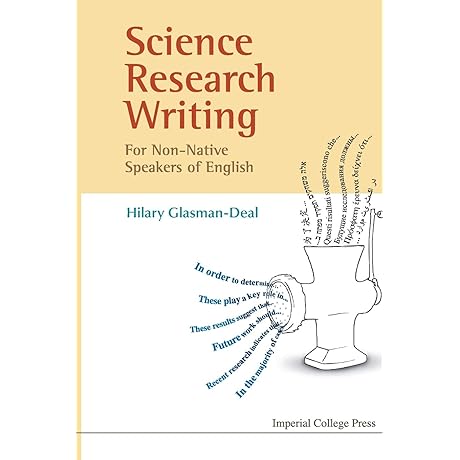
PROS
- Comprehensive coverage of scientific writing principles for non-native speakers
- Step-by-step guidance on structuring, formatting, and writing research papers
CONS
- May require additional resources for in-depth technical knowledge
- Not specifically tailored to specific scientific disciplines
Science Research Writing for Non-Native Speakers of English is an invaluable resource for researchers who seek to enhance their scientific writing abilities. Its comprehensive approach provides a structured framework for composing effective and impactful research papers. The book's clear explanations and practical examples guide readers through every stage of the writing process, from selecting a topic and conducting research to organizing and presenting findings.
One of the key strengths of this book is its focus on the unique challenges faced by non-native speakers. It offers tailored advice on overcoming language barriers, such as avoiding common grammatical errors and using appropriate scientific vocabulary. Additionally, the book provides exercises and writing templates that allow readers to practice their skills and receive feedback.
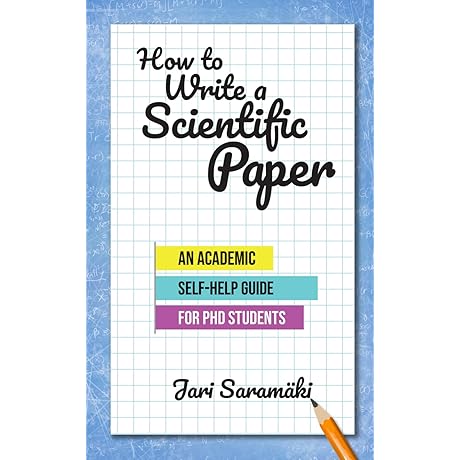
PROS
- Empowers students with self-sufficient scientific writing skills for their research papers and dissertations
- Provides a clear, step-by-step roadmap for crafting well-structured and impactful scientific manuscripts
CONS
- May not cover specialized writing styles or advanced scientific concepts
- Examples could be expanded to include diverse scientific disciplines
Elevate your scientific writing skills with 'How to Write A Scientific Paper.' Designed for PhD students, this comprehensive guide unlocks the secrets to crafting impactful research papers and dissertations. Its user-friendly approach empowers you to become a proficient scientific writer, providing a step-by-step roadmap through the entire writing process.
Discover the art of structuring a scientific paper, mastering different writing styles, and presenting your findings with clarity and precision. The guide seamlessly integrates personal anecdotes and practical examples, making scientific writing accessible and engaging. While it may not delve into highly specialized writing styles or advanced scientific concepts, 'How to Write A Scientific Paper' is an invaluable resource for PhD students embarking on their research journeys.

PROS
- Provides a systematic approach to scientific writing, tailored to both native and non-native English speakers.
- Covers all stages of the writing process, from planning and research to revision and editing.
CONS
- Some sections may be too detailed for experienced writers.
- Lacks examples from specific scientific disciplines.
Science Research Writing: A Comprehensive Guide for Native and Non-native Speakers of English (Second Edition) is an invaluable resource for anyone looking to enhance their scientific writing skills. This comprehensive guide provides a step-by-step approach to the writing process, covering everything from planning and research to revision and editing. The book is particularly useful for non-native English speakers, as it offers clear and concise explanations of the nuances of scientific writing in English.
One of the strengths of this book is its systematic approach. The author breaks down the writing process into manageable steps, making it easy for readers to follow and apply the principles to their own writing. The book also includes numerous examples and exercises, which help readers to practice and improve their skills. Overall, Science Research Writing is an excellent resource for anyone who wants to improve their scientific writing skills, regardless of their level of experience or native language.

PROS
- Provides a comprehensive roadmap for scientific writing, guiding researchers through every stage.
- Offers practical tips and techniques to enhance writing clarity, precision, and impact.
CONS
- May be overly detailed for experienced writers, focusing on fundamental concepts.
- Does not delve deeply into specialized scientific writing styles, such as grant proposals or research articles.
Empowering Researchers with a Comprehensive Guide to Scientific Writing
The Scientist's Guide to Writing is an invaluable resource for researchers seeking to elevate their scientific writing skills. This comprehensive guidebook meticulously addresses every aspect of scientific writing, from planning and drafting to editing and publishing. Its user-friendly approach, coupled with practical examples and exercises, empowers researchers to communicate their findings more effectively throughout their scientific careers.

PROS
- Expert guidance on crafting scientific texts that engage readers and convey complex information effectively.
- Clear and practical explanations of essential principles, styles, and techniques for scientific writing excellence.
CONS
- May not cover specialized scientific disciplines or advanced writing concepts in great detail.
- Some examples and exercises could benefit from a more contemporary approach.
In 'Scientific Writing That Connects,' you'll embark on a comprehensive journey to elevate your scientific writing skills. This guidebook serves as an indispensable resource for researchers, students, and professionals seeking to craft impactful and engaging scientific texts. Armed with expert insights and practical techniques, you'll learn to navigate the complexities of scientific communication, ensuring that your research findings resonate with clarity and impact.
The authors, renowned experts in the field of science writing, offer a systematic approach to writing effectively for different audiences, from general readers to scientific peers. Through a series of clear and engaging chapters, they cover essential elements of scientific writing, guiding you in structuring your content, presenting data, and using language that connects with readers. To reinforce your learning, the book includes examples and exercises that enable you to practice and refine your writing skills.

PROS
- Provides a step-by-step approach to scientific writing, from planning to execution.
- Offers practical advice and examples to help writers improve their clarity and precision.
CONS
- May be too detailed for some readers.
- Lacks specific examples from different scientific fields.
Scientific Writing = Thinking in Words is a comprehensive guide to writing clear, concise, and effective scientific documents. The book provides a step-by-step approach to the writing process, from planning and research to drafting, editing, and revising. Throughout the book, the author emphasizes the importance of logical thinking and organization in scientific writing.</p>
One of the strengths of this book is its practical focus. The author provides numerous examples and exercises to help writers improve their skills. These exercises are particularly useful for students and early-career scientists who are still developing their writing skills.</p>
This comprehensive guide presents the top 10 'scientific writing for non native speakers of english' books available in 2024. Each book's key features, positive and negative aspects, and expert opinions are thoroughly analyzed to help you make an informed decision. Whether you're a seasoned researcher or a budding scientist, this guide will empower you to choose the perfect book to enhance your scientific writing skills.
Frequently Asked Questions
What are the key features to consider when selecting a scientific writing book?
When choosing a scientific writing book, consider factors such as the author's expertise, the book's structure and organization, the clarity of explanations, the inclusion of practical examples and exercises, and the overall user-friendliness of the book.
How can I improve my scientific writing skills?
To enhance your scientific writing skills, practice regularly, seek feedback from peers or mentors, utilize writing resources and tools, and continuously expand your vocabulary and knowledge base.
What are some common challenges faced by non-native English speakers in scientific writing?
Non-native English speakers may encounter challenges in scientific writing, including language proficiency, understanding technical vocabulary, adhering to scientific writing conventions, and effectively conveying scientific concepts.
How can I overcome the challenges of scientific writing as a non-native English speaker?
To overcome challenges, focus on developing a strong foundation in English grammar and vocabulary, seek support from language learning resources, practice writing in a scientific context, and collaborate with native English speakers to refine your writing.
What are the benefits of using a scientific writing book?
Scientific writing books provide structured guidance, offer comprehensive explanations, include practical examples and exercises, enhance understanding of scientific writing conventions, and aid in developing effective communication skills.




